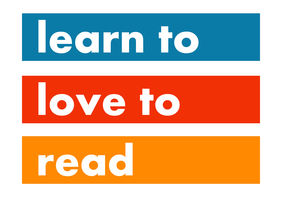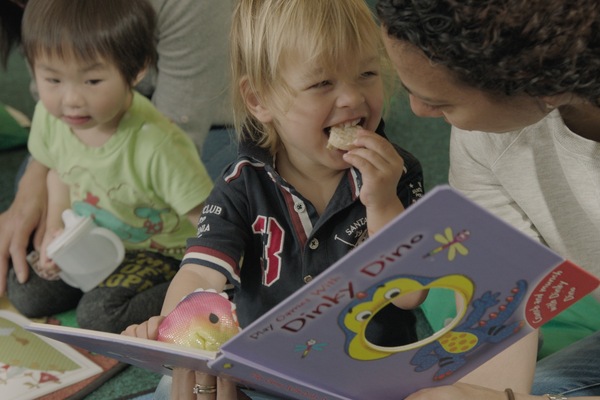I am finding that one of the advantages of COVID-19 and the current lockdown is having more time to read fiction. I loved reading and as a child I did too. I grew up in the 1990s, and to me Jacqueline Wilson was everything! Her books covered themes such as adoption, divorce and mental illness, which fascinated me. I was enthralled. Although I did not know it at the time, I was mildly dyslexic (something which I did not discover until University when I was formally tested). I struggled with sounding out words, but I was extremely persistent, and this was because of the stories. I just wanted to find out what happened!
The UK early years curriculum and the way early literacy is taught in UK classrooms is informed by the Simple View of Reading model. This is a scientific model devised in the 1980s by reading researchers. The model says that two skills are needed for reading, and these are decoding (or phonics - the reading part of reading) and comprehension (putting all the words together to take meaning from it). As a result of the model, the UK curriculum puts a big emphasis on decoding, with phonics teaching taking up a large proportion of teaching time within the early years classroom. Given my own experiences as a young reader who struggled with decoding, but loved the plots of stories, it feels important to me that more emphasis should be put on the comprehension side of the model in the UK curriculum even in the earliest stages of learning to read. These feelings led me to start a PhD into reading comprehension development in October 2015 at Roehampton University.
Although my PhD looked at many things, one of the aims was to break apart the skill of comprehension. The idea was to find out exactly which skills help a child to be good at comprehending during reading. Importantly, I was interested in earlier skills predicting later reading - specifically, what skills in preschool (when children were 3 or 4 years old) predicted children’s comprehension when they are in Year 1 (6 years old). In order to assess this, my research followed over 150 children over two years from preschool to Year 1 measuring a number of skills using fun tasks. The research was supported by Learn to Love to Read and many of the children lived in the Wandsworth area.
A skill which I was particularly interested in was Theory of Mind. Theory of Mind is a psychological concept and is the ability to understand mental states (i.e. thoughts, feelings and perspectives) of others and recognise that other’s mental states may be different to our own. You can think of it as social understanding. Children are not born with a social understanding and instead it develops at about the age of 3 or 4 years old. Social understanding keeps developing throughout life with some adults being better at understanding and predicting social information than others. I wanted to find out if social understanding ability might help children with their reading comprehension, and specifically if a child who has a more advanced social understanding during pre-school would be better at comprehension later-on when they were in Year 1.
Logically, the link between social understanding and reading comprehension makes sense, because all children’s books, and indeed adult fiction too, revolve around characters and their mental states. For example, the well-loved picture book The Gruffalo by Julia Donaldson tells the tale of a big scary monster who believes a mouse’s claims that she is the most powerful animal in the forest. Readers are ‘let-into’ the understanding that the Gruffalo does not realise that when he is walking behind the mouse in the forest, other animals are moving out the way because they are afraid of him, and not of the tiny mouse. Children who are able to better understand the social information within the story such as that the mouse is deceiving the Gruffalo and that the mouse and the Gruffalo have a different perceptions of the situation , will have a better understanding of the story overall.
My findings showed that indeed, children’s theory of mind predicted their reading comprehension ability. Importantly that earlier theory of mind (in pre-school) predicted later reading comprehension (in Year 1). These finding may be useful for helping the way in which reading is taught in the early years because perhaps if more emphasis is given in the early years to discussing the characters and plots of stories including social information, this could improve children’s reading comprehension. Perhaps too, conversations which parents have with their child during shared reading about characters and their thought, feelings and perspectives, may help children with their reading comprehension. This might be something you want to try with your child during these lockdown times!




